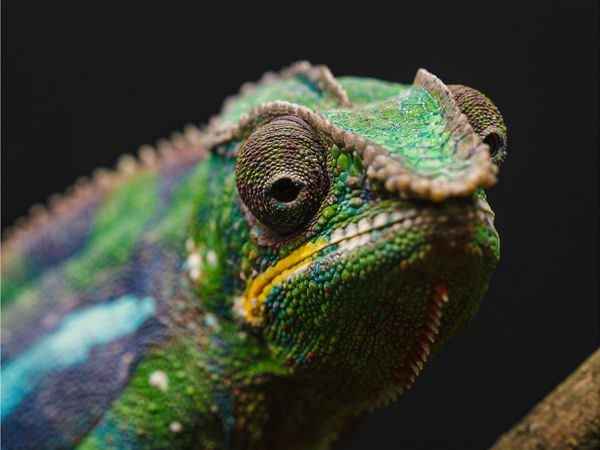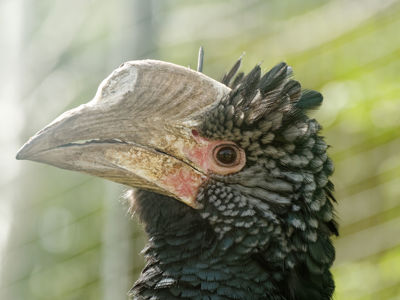
Silvery-cheeked hornbill
Silvery-cheeked hornbills are medium-sized members of the hornbill family. Males and females have a large creamy coloured casque on the top of their bills. All hornbills have a casque, a hollow structure on the top of the bill that supports the bill and enhances vocal calls, which is unique to this group of birds. Their plumage is mostly iridescent black with silvery-grey across the head and white on their back, rump and tail. Females are smaller than males and have a circle of bare red skin around their eyes.
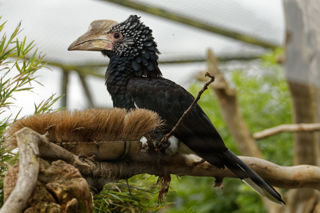
Male and female birds form a strong bond and share parental care of the offspring. Breeding occurs early in the year in northern areas, such as Ethiopia, and shifts towards the end of the year further south.
Females build a nest in a tree hollow before blocking it up with mud pellets created by the male. She will remain in the blocked up hollow until the chicks fledge. The male provides food for the female and the chicks. He will make up to 24 visits every day, which can add up to 1,600 visits over the entire nesting period!
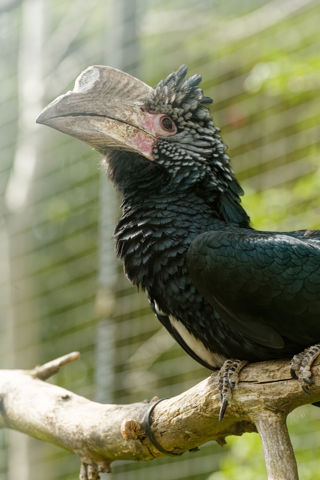
The diet of the silvery-cheeked hornbill is mainly fruit such as figs. These birds can fly large distances to find fruiting trees. They will also take insects and small vertebrates such as lizards and frogs.
The silvery-cheeked hornbill is a locally common bird throughout its range and is therefore classed as Least Concern. It is threatened by habitat destruction, which is reducing suitable nesting and roosting trees. However, they can survive in a wide variety of habitats and actively move around to locate new feeding trees.
Key Facts:
Conservation Status: Least Concern
Distribution: Eastern Africa
Habitat: Coniferous & Broadleaf Forests, Forest, Mountains, Tropical Forest
Diet: Fruit, Insects, Small Amphibians, Small Mammals
Height: 60 – 70cm
Weight: 1 – 1.4kg
No. of young: 1 – 2
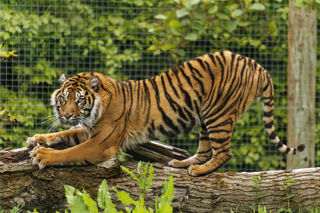
SUPPORT OUR ANIMALS
If you're looking for an alternative way to donate to Twycross Zoo, you can help support our animals and our zoo keepers by purchasing something from our Amazon Wishlist!
Updated regularly by our zoo keepers, the items on the list help to provide enrichment for our animals and keep their habitats well maintained.
Every donation helps us as a conservation charity.
